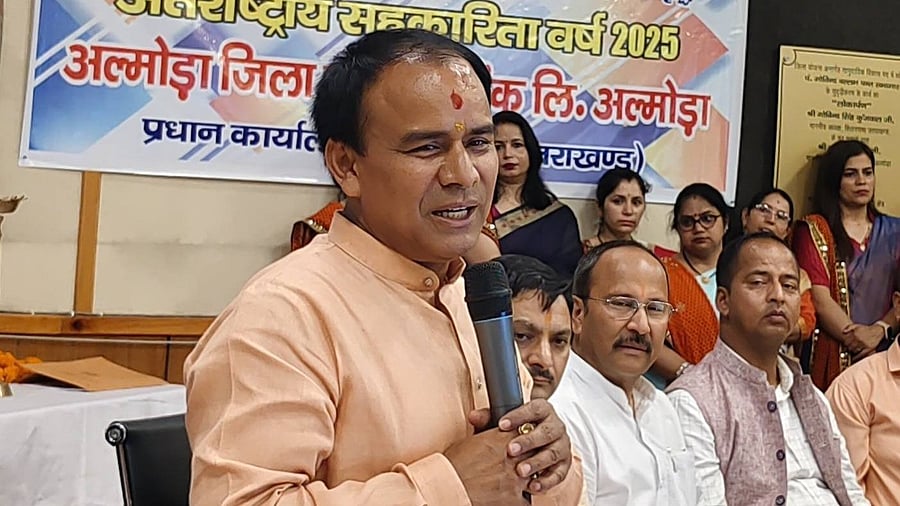
Uttarakhand's education minister Dhan Singh Rawat.
Credit: X/@drdhansinghuk
New Delhi: Amid a debate over the National Council of Educational Research and Training (NCERT)’s change in social sciences syllabi, describing the Mughal reign as “brutal”, the Uttarakhand government has written to the syllabus body asking them to include the Bhagwat Gita and Ramayana in school syllabi.
State education minister Dhan Singh Rawat on Wednesday said that the Uttarakhand government has asked the syllabus body to include the religious texts in the syllabus of over 17,000 government schools in the state.
“In a meeting of the union education department with the Chief Minister, we have asked the NCERT to include Bhagavad Gita and Ramayana in the syllabus to be taught in 17,000 government schools of Uttarakhand. Until the new syllabus is introduced, students will recite verses from these texts during daily prayer sessions,” he told reporters.
NCERT has been publishing new school textbooks as per the National Education Policy (NEP) 2020 and the National Curriculum Framework for School Education 2023. Till now, new books for classes 1 to 4 and classes 6 and 7 have been released.
Some of the changes in the textbooks include describing Babur as a “cruel conqueror”, Akbar as a “mixture of tolerance and cruelty”, and that Aurangzeb demolished “temples and gurdwaras” during his rule.
The NCERT released a statement, saying that these events indeed too place and “left their mark on Indian history”. They published a note in the textbooks, “Note on Some Darker Periods in History” as a rationale for the changes.
“The historical account given, while it does not sanitise history, is balanced and entirely evidence-based. Besides, in addition to the ‘Note on Some Darker Periods in History’, a cautionary note has been inserted in one of the chapters to make it clear that no one should be held responsible today for events of the past. The emphasis is on an honest approach to history with a view to drawing from it important lessons for a better future,” the NCERT said in a statement.
